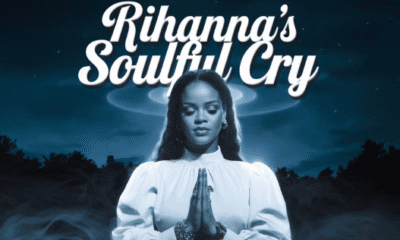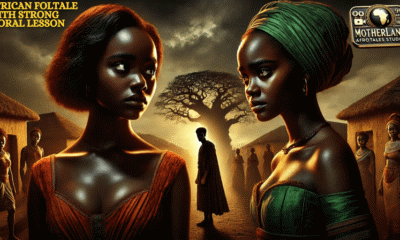NaijaGists.com Latest News Updates
Why Nigeria Is A Dangerous Place For Christians To Live
Seeking Unity in Diversity: Solomon Buchi’s Provocative Insights on Religious Tolerance in Nigeria
A notable figure in the Nigerian media landscape, Solomon Buchi, recently sparked a debate with his candid comments on Twitter. In his series of tweets, Buchi drew attention to what he perceives as the perilous nature of practicing Christianity in Nigeria. He boldly stated that being a Christian in Nigeria equates to living on the edge, and he pointed out that those who deny this reality are part of the problem.

Solomon Buchi
His main argument focused on the selective response of Nigerian Muslims to global events. He criticized their loud condemnation of the Palestinian genocide while noting their silence on the Plateau massacre, where over 100 Christians were brutally killed. He labeled this inconsistency as hypocrisy, underscoring a disturbing trend where violence is only condemned when Muslims are the victims.
Further expressing his concerns, Buchi highlighted the tragic incident on Christmas Day, where over 100 Christians lost their lives. The lack of significant action or widespread condemnation from the community deeply troubled him. He compared this to the hypothetical scenario where if 10 Muslims were killed by Christians on Eid-al-Fitr, it would likely have resulted in civil unrest and national outrage.
In a previous tweet in November, Buchi had brought up the issue of infidelity, questioning how people juggle multiple romantic partners simultaneously. Confessing his own bewilderment, he sought to understand the logistics behind distributing one’s attention and affection to several partners at once.
Going back to September, Buchi had also taken a stand on the societal perceptions of marriage. He challenged the age-old notion that men are doing women a favor by marrying them. He argued that marriage is not a remedy for a woman’s life problems and insisted that the idea that women depend on marriage for fulfillment needs to be discarded. Advocating for a change in this mindset, Buchi emphasized that marriage should be about mutual companionship, where both men and women enter the union for shared love and support.
His comments not only highlight the immediate challenges faced by Christians in Nigeria but also serve as a call to action for the entire Nigerian community.
Buchi’s reflections on the state of Christianity and the selective outcry in response to religious violence should be seen as a catalyst for change. It’s a reminder that unity and collective action are crucial in addressing such deep-rooted issues. The fact that he brings these concerns to the forefront suggests that awareness and dialogue are the first steps toward healing and reconciliation.
In the context of perseverance and hope, it’s vital for Nigerians, irrespective of their religious affiliations, to recognize the strength in their diversity. Nigeria, as a nation rich in cultural and religious diversity, has the potential to be a model of coexistence and mutual respect. The current challenges, as highlighted by Buchi, should not be seen as insurmountable but rather as opportunities to build a more inclusive and understanding society.
His engagement on topics like infidelity and marriage norms further demonstrates his commitment to addressing societal issues at their core. By challenging entrenched beliefs and practices, he encourages a reevaluation of values and norms, paving the way for a more equitable and respectful society.
In light of these discussions, Nigerians are encouraged to persevere, fostering a sense of community and shared responsibility. The hope on the horizon is a nation where every individual, regardless of their faith, can live without fear, and where diversity is celebrated rather than used as a tool for division.
The journey towards this ideal may be fraught with challenges, but with continued dialogue, introspection, and collective action, the vision of a harmonious Nigeria is achievable.
Buchi’s contributions to these critical conversations serve as a beacon of hope, inspiring others to join in the effort to create a more understanding, accepting, and peaceful Nigeria.





























